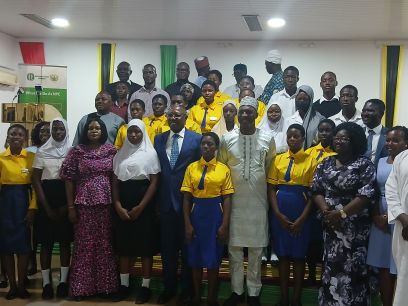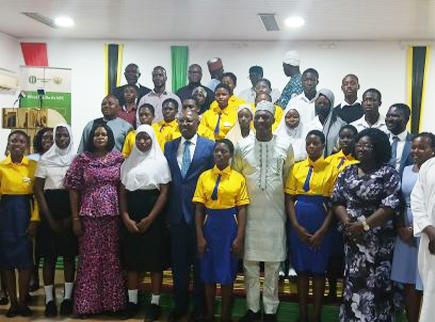A Memorandum of Understanding to guide religious tolerance in government assisted and private mission schools has been launched in Accra.
The MoU, signed by 13 missions and religious bodies, aims to provide guidelines that enables a safe learning environment, preventing discrimination on religious grounds to enhance greater social cohesion and promotion of national peace.
It provides clear and binding guidelines for mission schools to create safe, inclusive, and non-discriminatory learning environments, with key provisions including safe and healthy school environment acceptance of diversity, religious practices, dress code, transparency, among other things.
Developed by the Conference of Managers of Education Units (COMEU) and validated by the National Peace Council (NPC), the MoU was validated in April 2024 and endorsed by the Director-General of the Ghana Education Service on April 11, 2025.
The Most Revered Emmanuel Kofi Fianu, Chairman of the Peace Council, said the MoU was a landmark document representing a unified commitment to fostering peace, inclusivity, and harmony in educational institutions.
For generations, the partnership between the Government and religious missions had been a bedrock of the nation’s educational system, shaping the minds and hearts of countless Ghanaians, he said.
“The 13 esteemed missions that have signed this MOU, each contribute uniquely to our educational landscape,” Rev. Fianu said.
They are the Presbyterian Church of Ghana, the Ahmadiyya Mission, A.M.E Zion Church, Anglican Church, Assemblies of God Church, and the Ghana Baptist Convention.

The others are the Catholic Church, Evangelical Presbyterian Church, Islamic Mission, Methodist Church, Ghana, the Salvation Army, the Garrison Education Unit, and the Police Education Unit.
He noted that their dedication to education and moral development was a cornerstone of Ghana’s progress, and “we celebrate your collective efforts and acceptance of this MOU.”
Most Rev. Fianu noted that recent incidents of religious misunderstandings exposed gaps in the educational system’s approach to religious diversity and further underscored the urgent need for standardised regulations.
“These incidents risked undermining the peaceful coexistence guaranteed by Articles 21 and 25 of the 1992 Constitution, which enshrine freedom of religion and equal educational opportunities for all.”
He said the document, born out of extensive stakeholder consultations, including the Ministry of Education, Muslim, Christian and traditional leaders, addressed those challenges head-on.
“It is a covenant to uphold Ghana’s secular identity and constitutional values. It ensures that mission schools, while preserving their religious ethos, objectives and missions remain welcoming to all students.”
The NPC Chairman assured that the Council would lead a nationwide sensitisation programme with the support of the Regional Education Directors to ensure the guidelines were embraced by all stakeholders.
He called on educators, parents, and students to join in building schools that were sanctuaries of learning and harmony.
Rev. Thompson Kofi Arboh, National President, COMEU, said the MOU would ensure that managers of mission schools enjoyed high level of congeniality in their schools by way of supervision.
That, he said, would go a long way to promote teaching and learning and augment the already enviable high academic standards and other co-curricular performances.
He pledged COMEU’s support for the MOU and urged all heads of institutions at the pre-tertiary levels, the entire communities, parents and students to do the same. “COMEU has always showed the way that it is doable. Let us all come on board and make this work,” Rev. Arboh said.
COMEU is made up of three major blocks; general managers and regional managers of schools established by the church missions, the Islamic Ahmadiyya missions, and the regimental units, being the Military and Police.


https://shorturl.fm/ayyn9